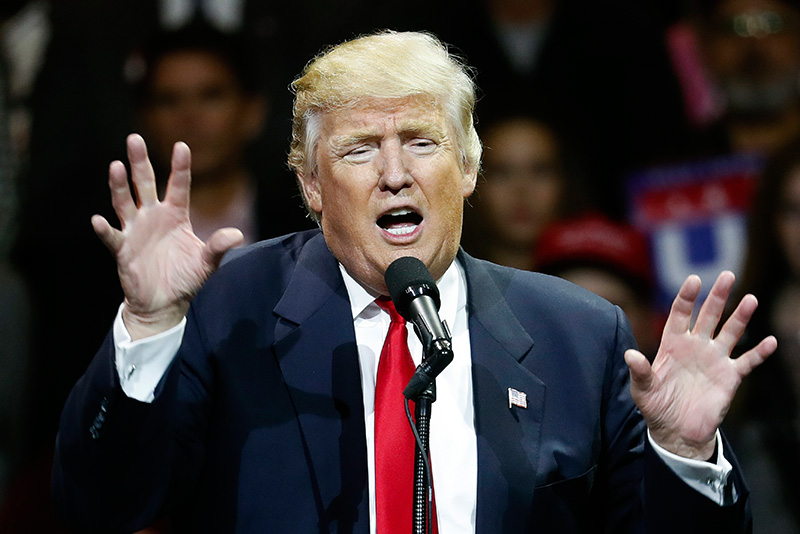WASHINGTON — President-elect Donald Trump threatened in a series of early-morning tweets Sunday to punish American companies that move plants and jobs to other countries.
The proposal — along with Trump's negotiation to get appliance maker Carrier to keep 800 jobs from going to Mexico — suggests the incoming president will put unprecedented pressure on U.S. companies to keep jobs in the United States.
A look at what Trump is doing and how it might work out:
What would Trump do?
Trump said he'd impose a 35 percent tax, called a tariff, on companies that close U.S. factories, cut American jobs, then relocate abroad and try to sell their products back to the United States.
"Please be forewarned prior to making a very expensive mistake," the president-elect tweeted.
Would that be legal?
Trump would likely need congressional approval to impose tariffs on a specific company or a group of companies, says Gary Hufbauer, an expert on trade law at the Peterson Institute for International Economics. He suspects that courts would block any such move if the president tried to do it himself. The president has broad authority to impose tariffs on specific categories of imported goods, but not to single out specific companies that make them, Hufbauer says.
What would tariffs mean to consumers?
Higher prices, most likely. Tariffs are charged at the border, and most importers likely would try to pass along as much of the higher cost as possible.Capital Economics estimates that tariffs of 45 percent Trump has threatened to impose on Chinese imports would raise the price of those products an average 10 percent. The Peterson Institute calculates that a 2009 tax on Chinese tires cost American consumers $1.1 billion in higher tire prices — equal to more than $900,000 for every job saved in the domestic tire industry.
Tariffs can cause collateral damage, too. When the George W. Bush administration slapped tariffs on steel imports in 2002, U.S. steel makers took advantage by raising their own prices. Companies that buy steel said the higher costs meant they had to cut thousands of jobs.


